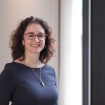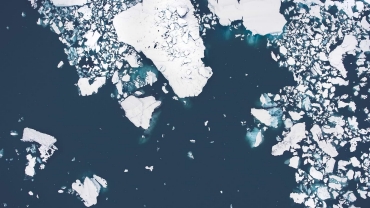
Reducing our natural resource consumption
As a services business, our operations require limited natural resources. We’ve been reporting on our circularity for over a decade and we have metrics and targets for all our resource consumption - set from our FY19 baseline. Progress against our total waste, paper, and water supply targets can be found on our Integrated Reporting Hub.
Our approach
To minimise the environmental impact of our resource consumption, we:
- run campaigns to educate and engage our people about related issues and opportunities
- invest in equipment that can help to reduce consumption
- purchase products with ‘circular’ credentials, including those with a high recycled content, whenever we can
- seek to reduce inbound packaging from suppliers
- re-use or recycle as much as possible.
Programmes
- Plastic
- Paper
- Water
- Land use
- Other consumption
Plastic
Without proper waste management, plastic can easily find its way into coastal environments and oceans, where it can have an adverse effect on a range of marine life, as well as impacting human food and water supplies. Recent research has shown that plastic pollution is now a pressing issue which business can help to solve.
We incorporate reduction, reuse and recycling principles to all of our procurement and waste management decisions, applying the principles of the circular economy, as far as reasonably practicable. However, the use of plastic in our business requires special consideration due to the waste management complexities created by the wide range of plastic types and the high number of composite products produced, the changing nature of waste management solutions available, and - in large part - the lack of market-ready alternatives to plastic.
We switched plastic bottles in our client meeting rooms for refillable glass bottles over ten years ago. We rationalised and reuse unwanted stationery items, and we seek to procure items that contain recycled plastic wherever possible - to create demand for secondary markets. We’ve also been trialling innovative recycling solutions for our ‘hard-to-treat’ waste streams such as composite stationery and food packaging.
In addition, we build awareness of the plastics issue amongst our employees and encourage behaviours that help tackle plastic pollution. This has been through beach cleans and 'plastic fishing', as part of our environmental volunteering programme, and advice around plastic-free switches as part of a PwC employee ‘Sustainable Living at Home’ guide.
Our office teams have accelerated sustainable solutions across the business. For example, by offering ceramic glasses and mugs across all our buildings and replacing the compostable cups we’d been using to date.
We’ve also introduced refillable hand-sanitiser dispensing units in the offices, and use smart water cleaning technology. Both are designed to reduce our plastic waste whilst keeping things safe and sparkling.
These initiatives demonstrate our commitment to continuously identify, evaluate and trial new sustainable solutions, as part of our circular consumption ambition.
More on our environmental impact
Contact us










